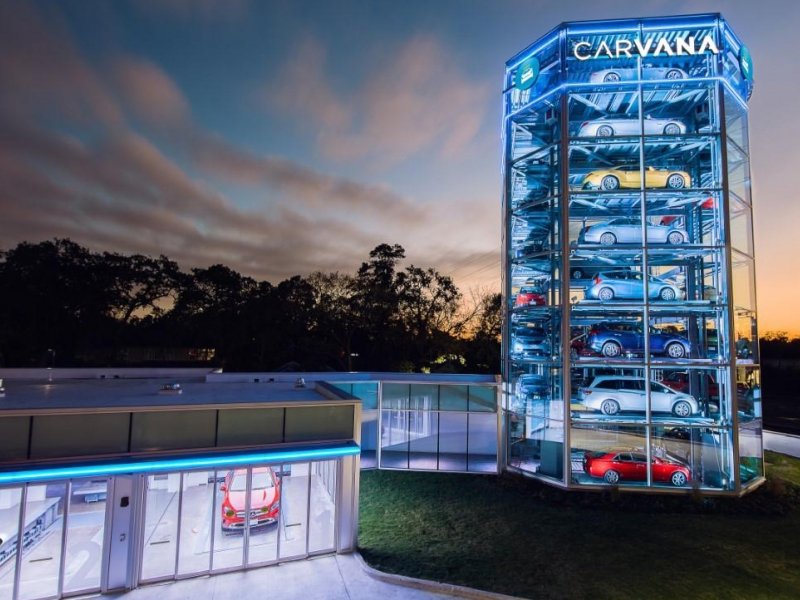
Carvana last week gave investors a tease about what’s in store when it releases its third-quarter financial results.
The digital used-vehicle upstart said it anticipates reporting record retail vehicle sales, total revenue, total gross profit per vehicle and EBITDA — earnings before interest, taxes, depreciation and amortization — margin for the third quarter. Carvana’s positive projections dovetail with a used-vehicle market that rebounded over the summer, despite a global virus outbreak that hasn’t waned.
Carvana’s stock price soared more than 30 percent on Sept. 22, the day the company gave its earnings preview. Its market capitalization rose to nearly $39 billion that day — an amount close to that of General Motors and more than twice that of CarMax, the nation’s used-vehicle leader.
Carvana’s stock price dipped by the end of last week — it closed Friday’s trading at $203.26, down more than 10 percent from its weekly high of $226.83 on Sept. 22. But its stock is rising again this week. As of late Tuesday morning, its share price had passed $230, and its market cap was above $39 billion.
Carvana is clearly valued at a premium, despite the fact that the company hasn’t reported a net profit since it went public in 2017. The retailer says it will break even in the third quarter after adjusting for interest, taxes, depreciation and amortization.
Carvana says it is capitalizing on growing momentum among used-vehicle buyers after demand returned late in the second quarter and into the third. Even so, Carvana, Vroom and Shift have been riding a surge of investor interest this year as the online used-vehicle sellers seek to push the industry into an e-commerce future.
CarMax last week said it finished the rollout of its new omnichannel strategy in the second quarter, when it also reported record financial results. And many franchised dealership groups have been investing in digital tools, with an increase in that activity since March, when state efforts early in the pandemic to contain the spread of COVID-19 left some retailers with no option but to sell vehicles online.
Franchised dealerships’ accelerated move toward digital sales can’t entirely be attributed to keeping up with Carvana and the like. But they’ve certainly taken notice of the model.